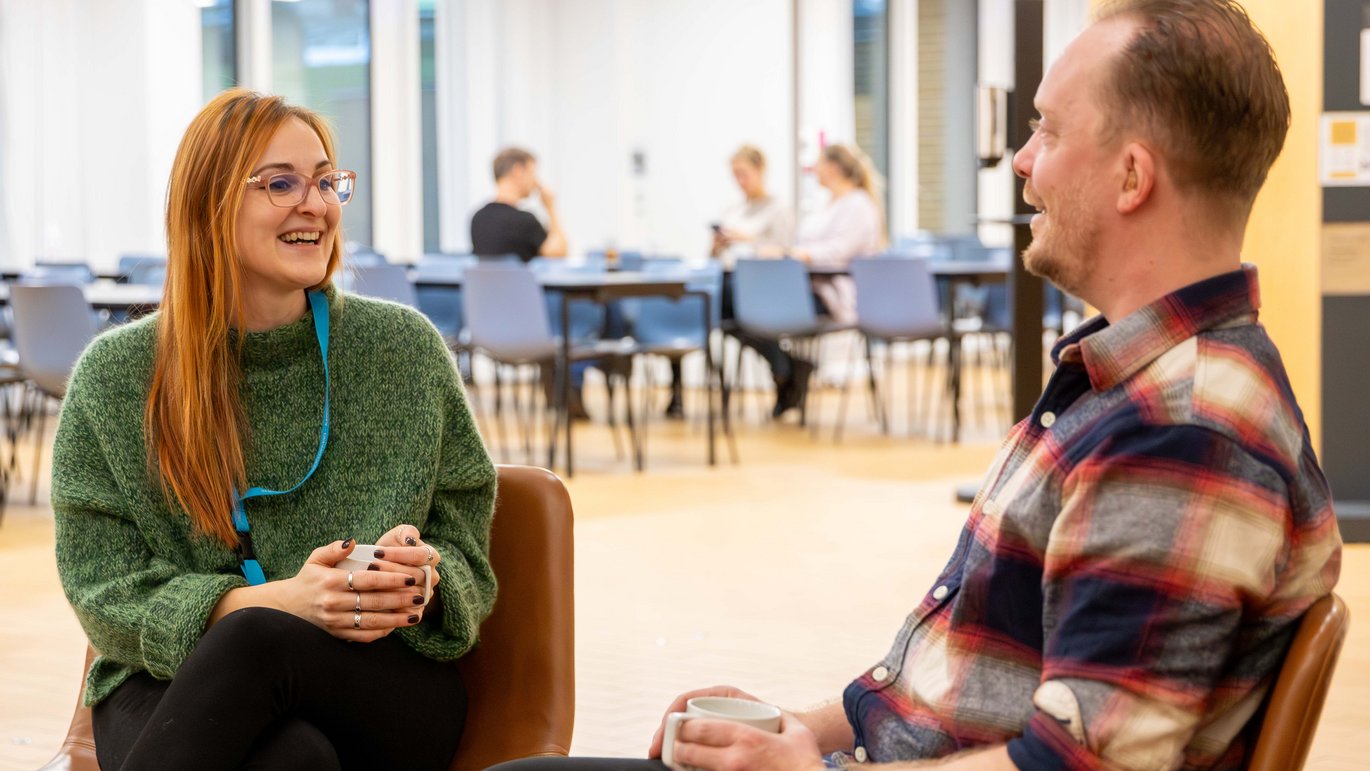“I get to practise my Danish so I can use it more actively”
The Department of Biomedicine is launching a new initiative in which international and Danish employees can meet informally and practice Danish or other languages.

Zeljka Brkic is an international postdoc and comes from Serbia. When she joined Aarhus University and moved to Denmark in 2021, she found that the Danish-language courses provided by the municipality did not give her the training in speaking and understanding the language that she needed.
“You learn a language by practicing speaking it. And I can do that best with someone who speaks it fluently,” she says.
She has therefore arranged to have lunch once a week with her Danish colleague from Biomedicine, Sune Jonathan Keidser-Nilsson. The aim is for them to speak Danish to each other.
Although Zeljka and Sune arranged to meet on their own initiative, their idea is perfectly in line with a new initiative from the Department of Biomedicine, in which international and Danish employees can meet for lunch or over a cup of coffee and practice everyday Danish. If, as an international employee, you want to practice your Danish language skills, or, as a Danish-speaking employee, you want to help a colleague with their Danish, you can sign up as a language buddy with one or more colleagues from the department. Find more information about the initiative at the bottom of this article.
Zeljka practises her language skills with her Danish colleague, Sune
“Sune and I have started meeting every Thursday for lunch. He speaks Danish, and I try to answer in Danish – as well as I can. Sometimes it goes well, and other times it doesn’t. But then he helps me with the correct wording and how the words should be pronounced,” Zeljka Brkic explains.
She thinks that this informal way of practicing Danish is really nice, as it can be slightly intimidating to speak Danish to strangers.
“I don’t always want to burden others with my poor Danish, and I sometimes feel a bit stupid when I try to speak Danish to people I don't know. That's why this is a nice way to practice,” she says.
“Of course, you pick up things in daily life, but our lunchtime arrangements in Danish make it much easier for me to learn to use the language actively. And speaking Danish often with a person expands my vocabulary and helps me speak more fluently.”
Get better at Danish — or another foreign language
Besides day-to-day benefits of international employees having some basic knowledge of the Danish language, the aim is for the language buddy initiative to help make life at work easier for non-Danish speaking colleagues at Biomedicine.
Head of Department Thomas G. Jensen talks about the background for the initiative:
“At the Department of Biomedicine, we value our strong international research environment, and it’s important that all our employees feel that they are part of the department. So, we want to make sure that everyone feels at home here, and help international employees to get the best possible conditions for being in Denmark,” he says.
As a Danish-speaking employee, you can therefore help an international colleague practise their Danish by listening and asking easy questions in Danish, for example over a cup of coffee. It could also be an opportunity for Danish employees to get acquainted with a new foreign language.
“Sune is also learning a little Serbian,” says Zeljka Brkic.
“Even on a small scale, it's always fun to learn some words and phrases in another language.”
Information about the initiative
The initiative will run from December 2023 to May 2024 at the Department of Biomedicine.
The idea is to meet for a 30-minute coffee break or lunch break once a week or every two weeks, as regular meetings ensure some sort of continuity in conversations.
Registration is by sending the following information to Jeannette Madsen from the secretariat at the Department of Biomedicine, at jepe@biomed.au.dk.
- Name
- Research group/unit
- Position
- Languages you speak fluently and can help others practise by listening and asking simple questions.
- Languages you would like to practise through informal conversations with another person (if any).
It's perfectly okay if you speak Danish and only want a few informal conversations with another person in Danish without wanting to practise another language yourself.